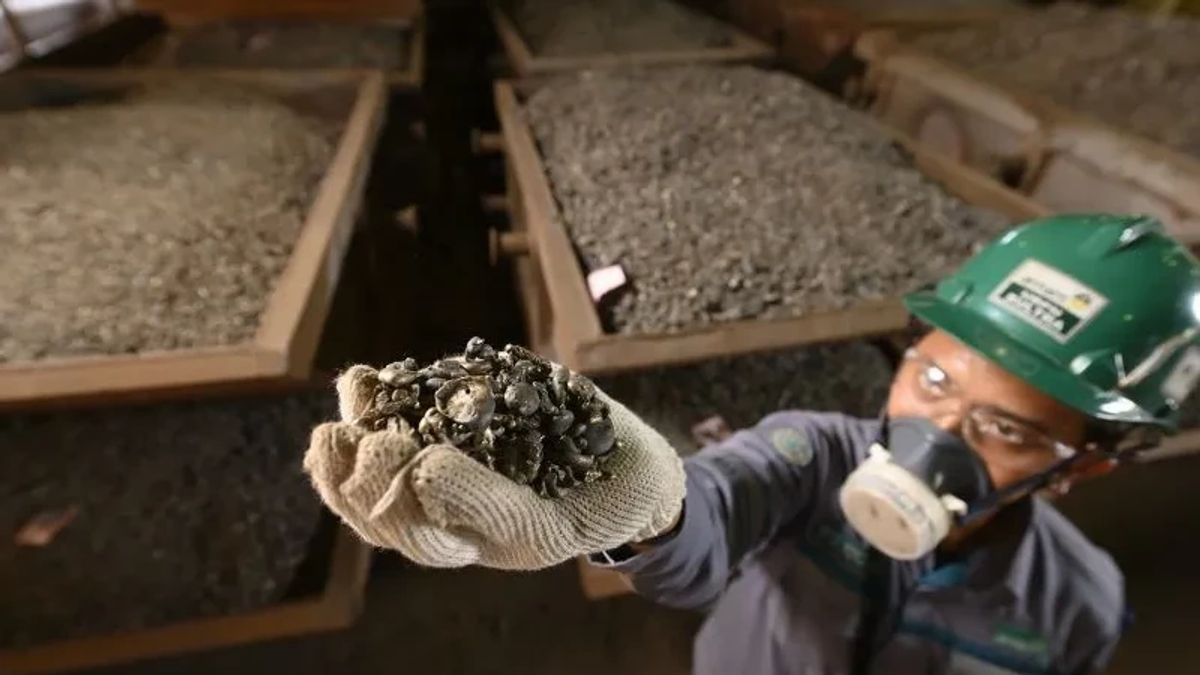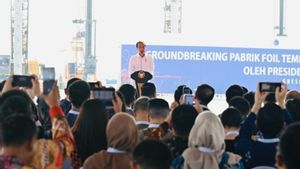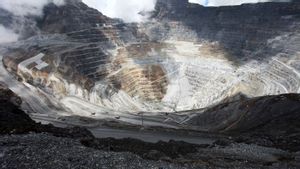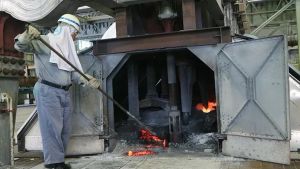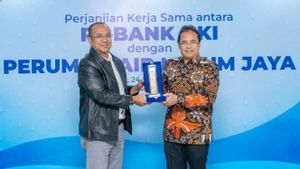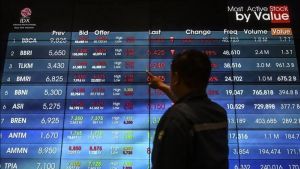JAKARTA - The government has provided relaxation of cored exports to five companies, namely PT Freeport Indonesia and PT Amman Mineral Nusa Tenggara for copper concentrate, PT Sebuku Iron Lateritic Ores for iron iron, and two smelters belonging to PT Kapuas Prima Coal, namely PT Kapuas Prima Cita for lead and PT Kobar Lamandau Mineral for zinc.
Responding to this, Energy Economy Observer from Gadjah Mada University Fahmybulni said that the granting of concentrat export relaxation has led to discrimination against nickel and bauxite entrepreneurs who have been required to downstream in domestic smelters.
"As a result, they will demand the relaxation of exports of similar raw materials. If the government fulfills these demands, the fate of the downstream program cannot be avoided," said Fahmy in a written statement received by VOI, Monday, June 26.
He explained that previously with courage and courage, President Joko Widodo imposed a policy to prohibit nickel ore exports starting January 2020. Jokowi even did not budge when the policy was reported to the World Trade Organization (WTO).
Despite losing at the WTO Forum, he continued, Jokowi was even bolder and braver to continue banning exports of all mining and mineral products, without downstreaming in domestic smelters.
"The purpose of downstreaming is to increase the added value and building of related ecosystems of the industry. The downstream program has proven to increase the added value that has multiplied," added Fahmy.
Then, after the ban on exports of raw materials, Indonesia managed to increase the export value of nickel derivative products by 19 times, which was originally only IDR 17 trillion or USD 1.1 billion in 2017, increased to IDR 326 trillion or USD 20.9 billion in 2022.
VOIR éGALEMENT:
Likewise, the added value produced by Bauxite derivative products has increased state revenue from IDR 21 trillion in 2017 to around IDR 62 trillion by the end of 2022.
"However, unfortunately Jokowi's guts were successfully broken by Freeport McMoran, which forced the Indonesian government to issue relaxation (postponement) on the prohibition of consemterate exports, tin raw materials, silver and gold," he said.
He added, with the relaxation, the downstream program was increasingly ravaged when it was found that 5.3 million tons of illegal nickel ore exports had been found in China since 2020.
"In addition, the granting of concession export relaxation and illegal exports of nickel ore will trigger uncertainty that causes smelter investors to leave the country," concluded Fahmy.
The English, Chinese, Japanese, Arabic, and French versions are automatically generated by the AI. So there may still be inaccuracies in translating, please always see Indonesian as our main language. (system supported by DigitalSiber.id)
